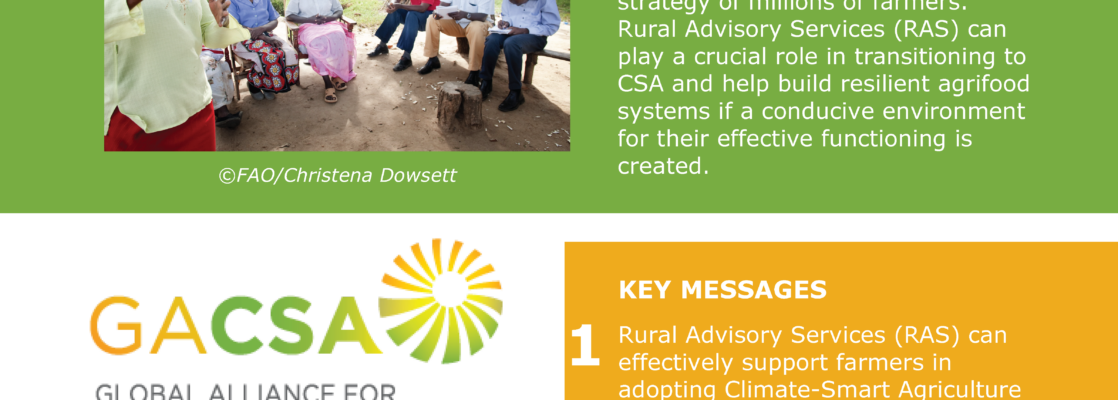Climate change already affects agriculture and food security, and if no urgent actions are taken, will put millions of people at risk of hunger and poverty. The expected effects of climate change – higher temperatures, more frequent extreme weather events, water shortages, rising sea levels, ocean acidification, land degradation, ecosystems disruption and biodiversity loss – could seriously compromise agriculture’s ability to feed the most vulnerable, thus impeding progress towards the eradication of hunger, malnutrition and poverty (FAO, 2016). Productivity decline leading to food supply shortfalls and increase in food prices would directly affect millions of low-income smallholder farmers, especially those who depend on agriculture for their livelihood and income in developing countries. Moreover, considering its major contributions to climate change, agriculture could be managed to leverage mitigation — reducing greenhouse gas (GHG) emissions and increasing carbon storage on farmland. Climate-Smart Agriculture (CSA) is an approach that integrates climate change into planning and development of sustainable agricultural systems. The Food and Agricultural Organization of the United Nations (FAO) defines CSA as “agriculture that sustainably increases productivity, enhances resilience (adaptation), reduces/removes GHGs (mitigation) where possible, and enhances achievement of national food security and development goals” (FAO, 2013). CSA is not a one-size-fits-all set of practices to be adopted by every farmer. In each location, its form needs to be defined by the context (i.e. extent of vulnerability to climate change, varying community risk profiles, availability of resources and livelihood options). It can be applied on a single farm or over entire landscapes, and it often needs involvement of diverse agricultural stakeholders and coordination across different agricultural sectors, as well as other related sectors, such as energy and water. Enhancing the capacity of farmers to manage risk and adopt effective climate change adaptation and mitigation strategies therefore needs special attention. The implementation of CSA innovations calls for the design of appropriate solutions adapted to the technical, institutional and policy-related needs of the stakeholders involved.
Authors: Rasheed Sulaiman V
Contact address: www.fao.org/gacsa/en/
Institution: Centre for Research on Innovation and Science Policy (CRISP)
Twitter name of the institution: @CGIAR
Twitter link: https://x.com/CGIAR
Available downloads:


